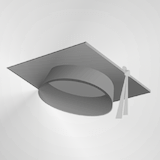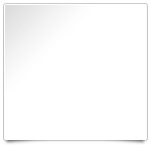1. Please read the text and answer the questions that follow it:
A ring stand is probably the handiest single support you can own. It can be used to
hold a funnel or to support a flask, beaker or crucible over a flame.
A tripod may be substituted for a ring stand. This three-legged iron stand may have
a single ring for a top or it may have several concentric rings which can be removed
or added to suit the size of the apparatus to be heated.
If you have a supply of gas in your lab, a Bunsen or a Fisher burner will solve prac�tically all your heat problems. If you have not, you will have to improvise. A small
alcohol lamp will generally do for heating test-tubes. A larger alcohol or gasoline
burner or an electric hot plate will heat flasks and beakers. A propane soldering
torch, provided with a flame spreader, will give you plenty of heat.
The Bunsen burner may be bought in types for either natural or artificial gas. A
wing-top attachment will spread the flame for the working glass. The hottest part of
a Bunsen flame is a point just inside the tip of its outer cone. To light a Bunsen burn�er, close the air supply at the base of the burner, turn on the gas at the source and
bring a lighted match just above the mouth of the burner from one side. Then grad�ually open the air supply until the original luminous yellow flame has turned non�luminous and blue.
The Fisher burner is an improved modern form of air-gas burner which costs more
than the Bunsen type but which gives a broader flame and considerably more heat.
a) What are ring stands and tripods used for?
b) Why are some tripods fitted with concentric rings?
) What kinds of apparatus are used for heating and what can be done if they are
not available?
d) Which three differences between a Bunsen and a Fisher burner are mentioned in
the text?
e) What are test-tubes and beakers used for?
2. Translate the following sentences into English (using the gerund).
a) Haben Sie etwas dagegen, das Experiment noch einmal durchzuführen?
b) Er äußert seine Meinung nicht gern.
c) Ich schlage vor, ihn zu fragen
d) Dieses Handbuch zu lesen, ist sehr nützlich.
e) Nicht auf die Experten zu hören, kann sehr teuer werden
f) Vermeiden Sie es, die Proben zu überhitzen
g) Ich bin daran interessiert, die Ergebnisse so schnell wie möglich zu veröffentlichen (publish).
3. Complete the sentences with the expressions in brackets in their correct forms.
Example: I’m ________________________ (think, move) to another country.
→ I’m thinking of moving to another country.
a) She is _____________________________________ (interest, find) a new job.
b) I _____________________________________ (propose, check) the temperature
first.
c) We _____________________________________ (look forward, cooperate) with
your team again.
d) Yesterday the company _____________________________________ (decide,
reduce) their workforce in Hamburg.
e) He was _____________________________________ (tired, work) in the lab, so
he found himself a new job.
f) I _____________________________________ (enjoy, experiment) but I
_____________________________________ (dislike, do) routine work.
4. Answer the following questions about using computers:
When did you first use a computer? What kind of computer was it?
How do you use a computer at work and in your free time nowadays?
Do you like working with computers? Why? Why not? (Write about 150 words.)
 2.00
2.00
 2.00
2.00
 Bewertungen
Bewertungen
 Benötigst Du Hilfe?
Benötigst Du Hilfe?
 Was ist StudyAid.de?
Was ist StudyAid.de?
 Rechtliches
Rechtliches
 Mehr von Denim0610
Mehr von Denim0610


;)





